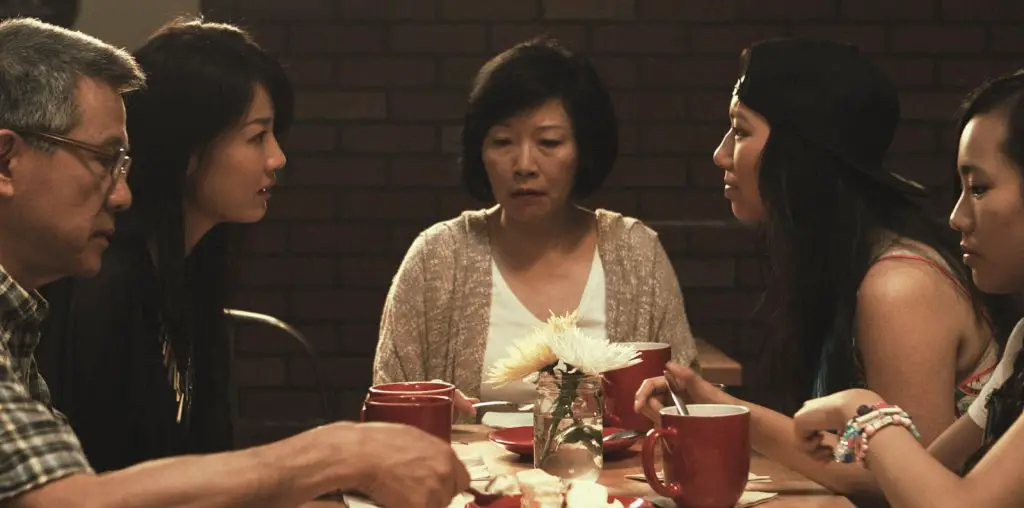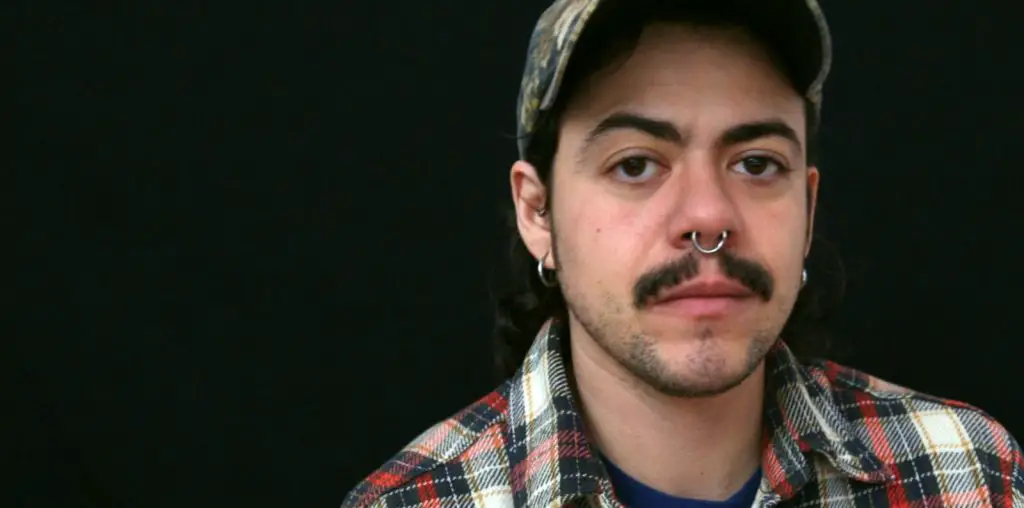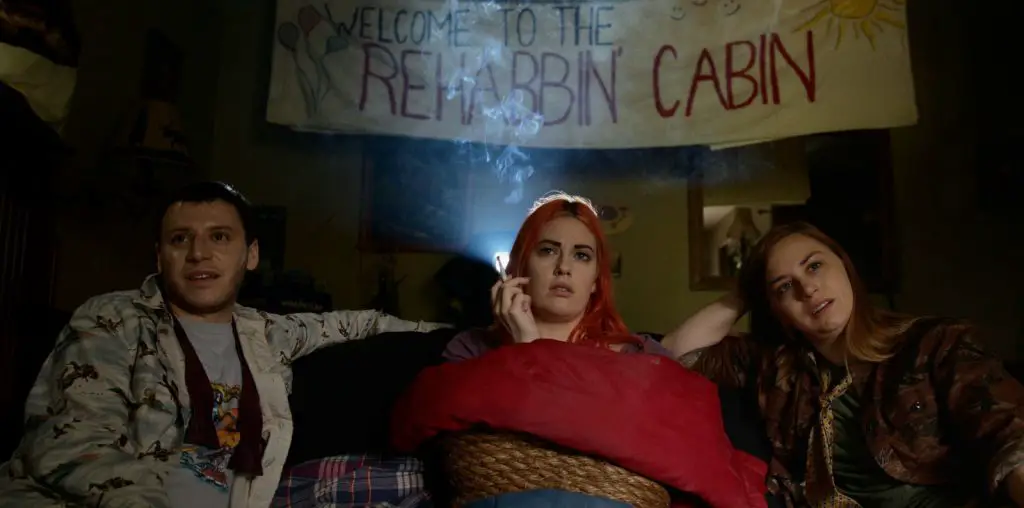
Director S.J. Creazzo’s Skipping Stones is a drama about the pervasive, progressive deterioration caused by grief and guilt. David (Nathaniel Ansbach) comes back to his small hometown almost a decade after his involvement in a terrible accident that resulted in the death of his friend, Bobby. His death tore apart two families. Years later, David, who has taken up drinking heavily, and Bobby’s younger sister Amanda (Gabrielle Kalomiris) are still struggling to piece together what happened and find a way to move on.
A grey cloud hangs over David’s interactions with his family and old friends, as everyone is aware of his suicide attempt and is unsure how to talk to him. Coming home is awkward for him for all those reasons and more. His return home is to seek answers or closure of some kind. Amanda is equally stuck in life, still living at home, unemployed, having never gone off to college. She has also given up on her dreams of pursuing dance as a career. She is also drinking and engaging in self-destructive behavior.
There’s a desperate but not unrealistic sadness in the fact that with so many years since the event, neither David nor Amanda has done any work toward healing from it. He’s stagnated, paused in place, carried his PTSD like a stone, and only now is he trying to come to grips with what happened and how it derailed his life. Amanda’s relationship with her parents is shattered over them turning inward after Bobby died, and she feels that she essentially disappeared in their minds, pushed out by grief for their son. Her mother, Mrs. Travers (Patricia Charbonneau), is constantly furious with Amanda, and every conversation between them is a fight that culminates in a giant eruption of rage and guilt.
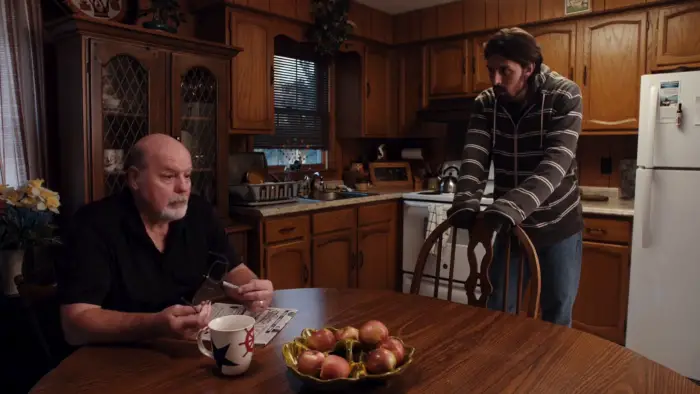
“David comes back to his small hometown almost a decade after his involvement in a terrible accident…”
Amanda and David turn to each other for support but find they have much between them to forgive as well, and their interactions take on a bitter undertone. Amanda asks David if he’s still considering suicide as if she almost hopes he is. She tells him she wants to fake a suicide attempt just to hurt her mother. Part of the frustration in the families comes from David returning and wishing to reexamine events so far in the past. They all made whatever peace they could with Bobby’s death years ago. It seems selfish of David to have deferred dealing with it for so long, then expect everyone to be able to return to that dark place because he needs to talk about it.
Skipping Stones is hard to watch, as the characters are still so broken all these years later. There seems to be little hope for any of them, and it’s difficult to see where the film is going: there’s no clear protagonist until the end. The screenplay, by Rich Cirillo, finds moments of clarity and revelation, but any real prospect for joy fled this circle of people long ago. Ansbach and Kalomiris carry the film well with their performances, which are emotionally charged and nuanced.
A special note of recognition goes out to the appearance of Michael Ironside. He’s an underrated character and voice actor who’s been around for decades, with an intense screen presence, who has often played a heavy. He gives us Mr. Travers, David’s father, with a perfect mix of frustration and menacing anger. The pace of Skipping Stones is slow, and the soundtrack is lovely, making for a pleasant viewing experience. But the only peace one will experience here is found in the quiet of the grave at the end of all things.
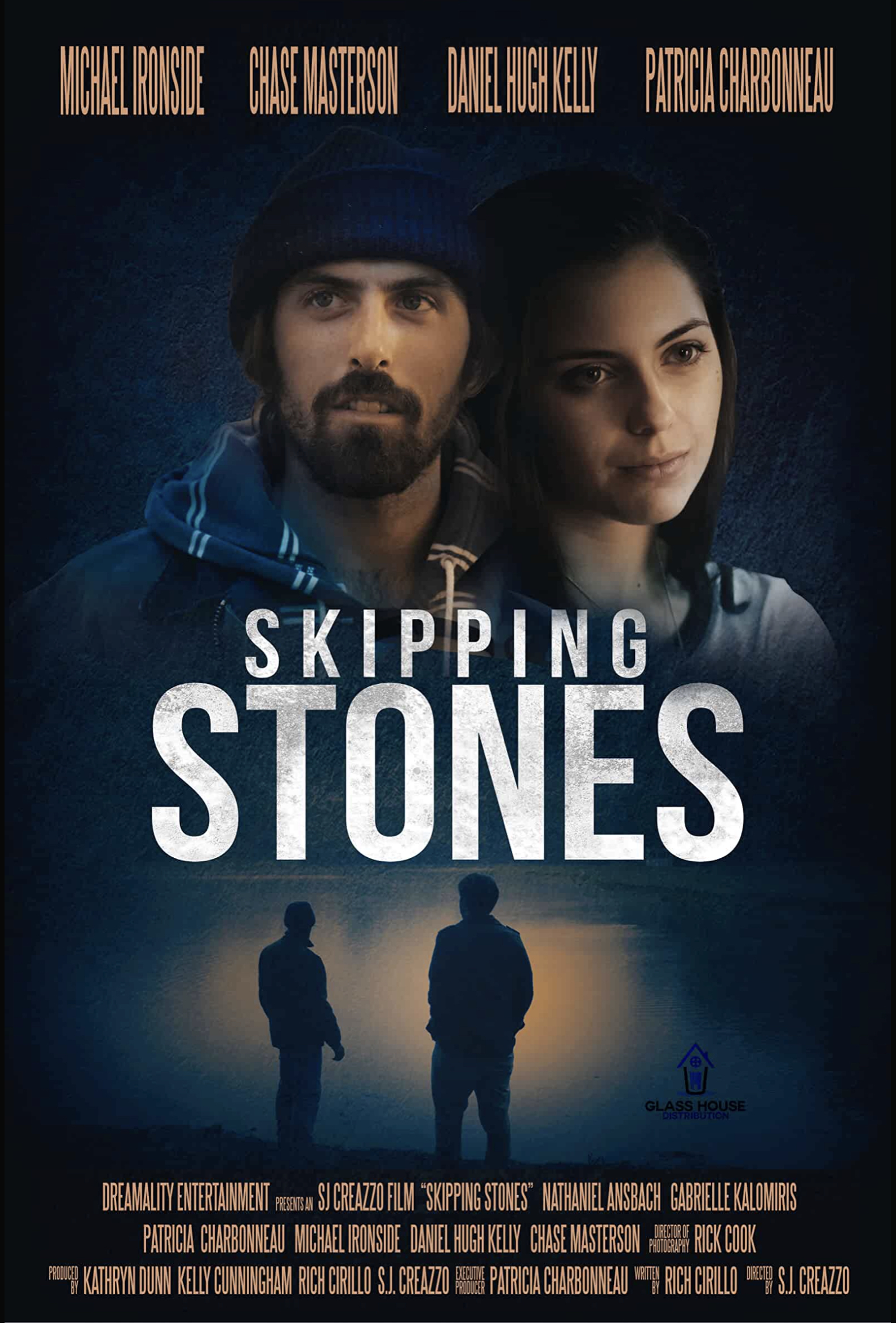
"…finds moments of clarity and revelation..."
